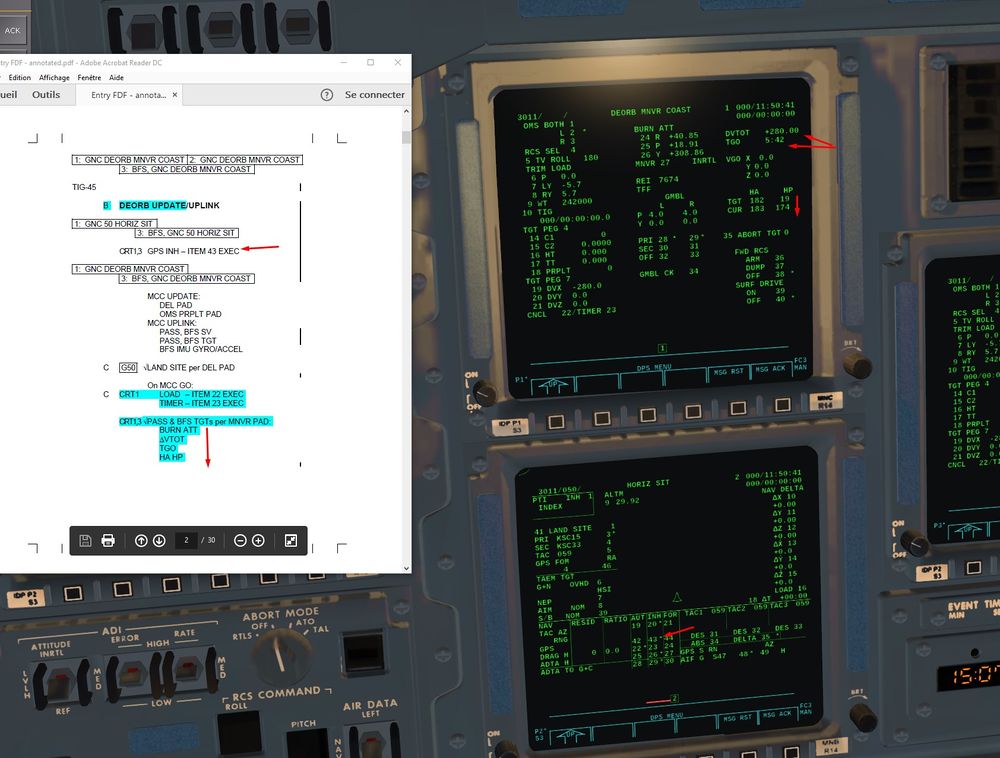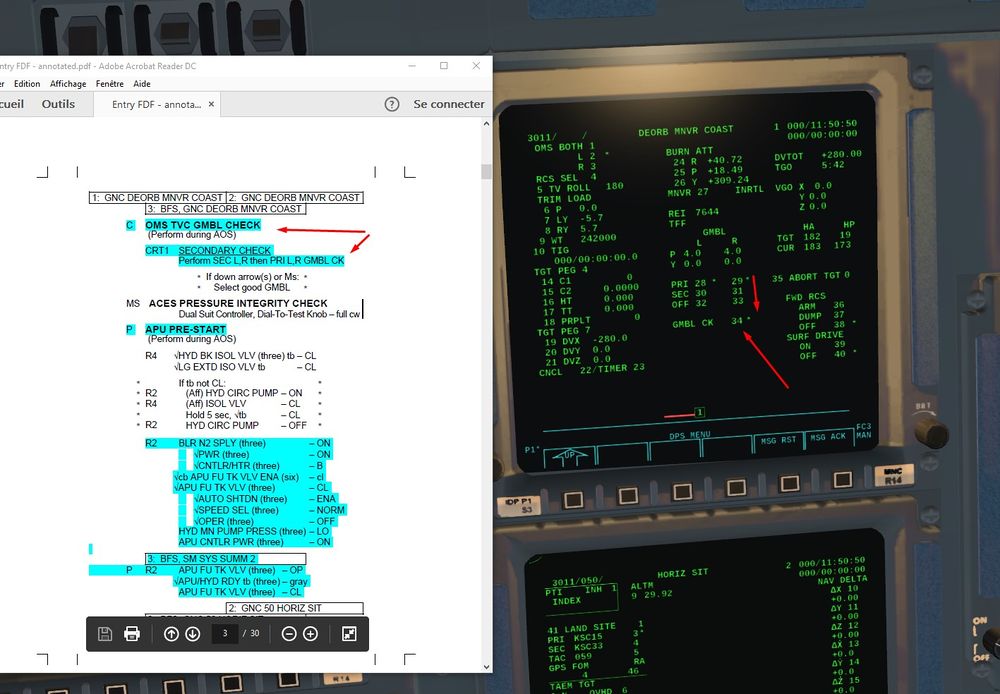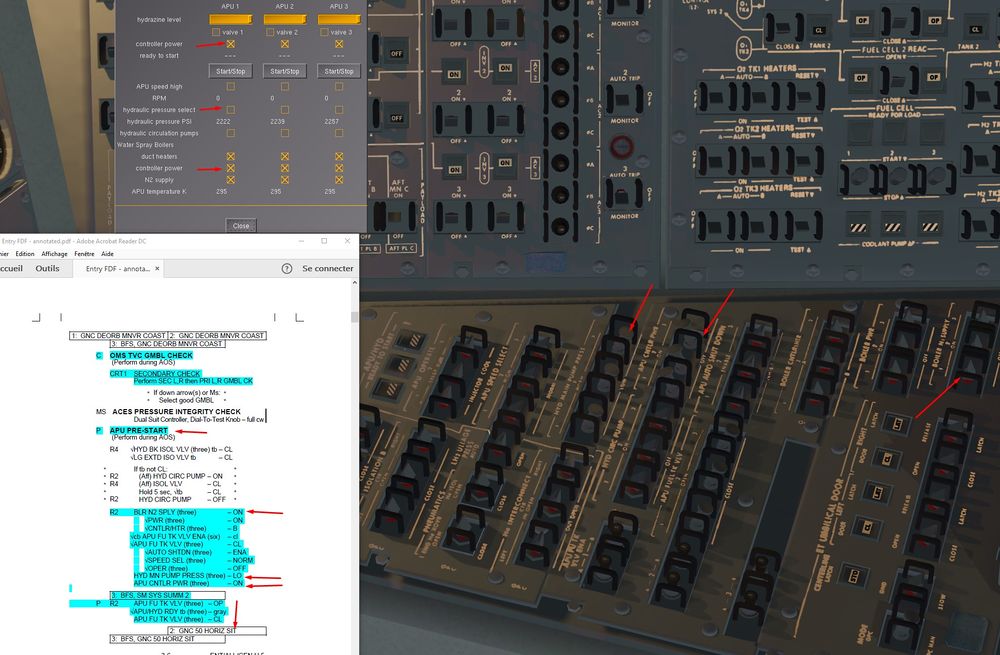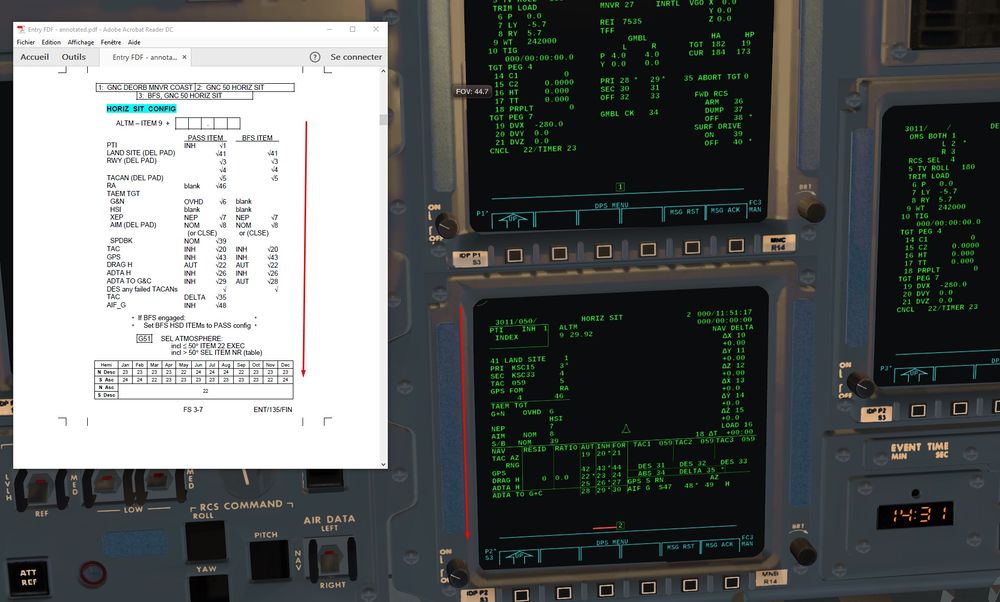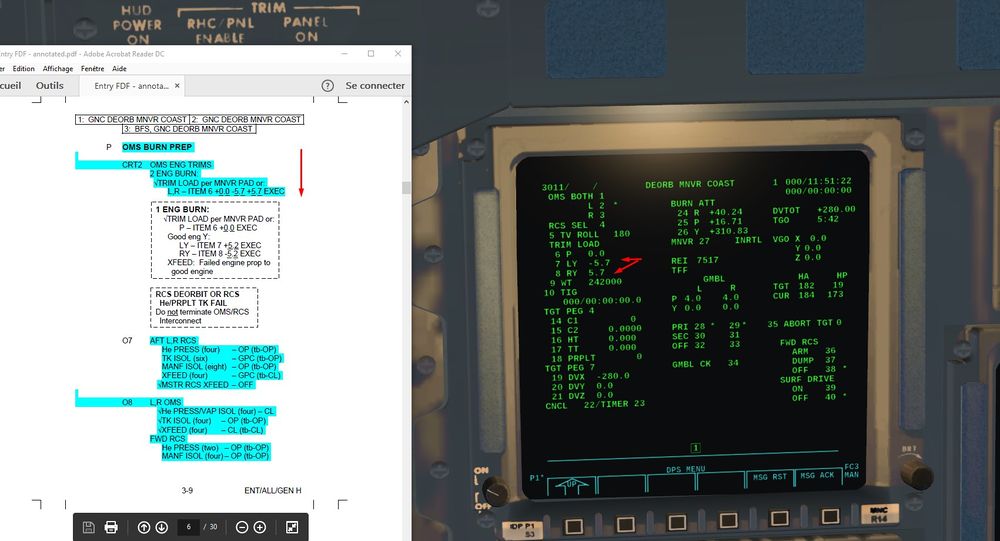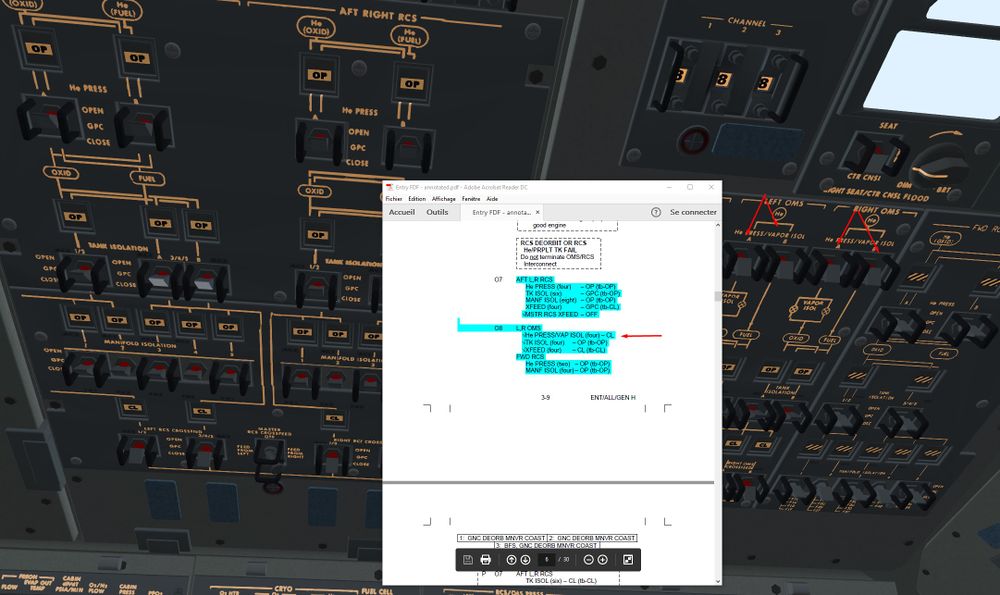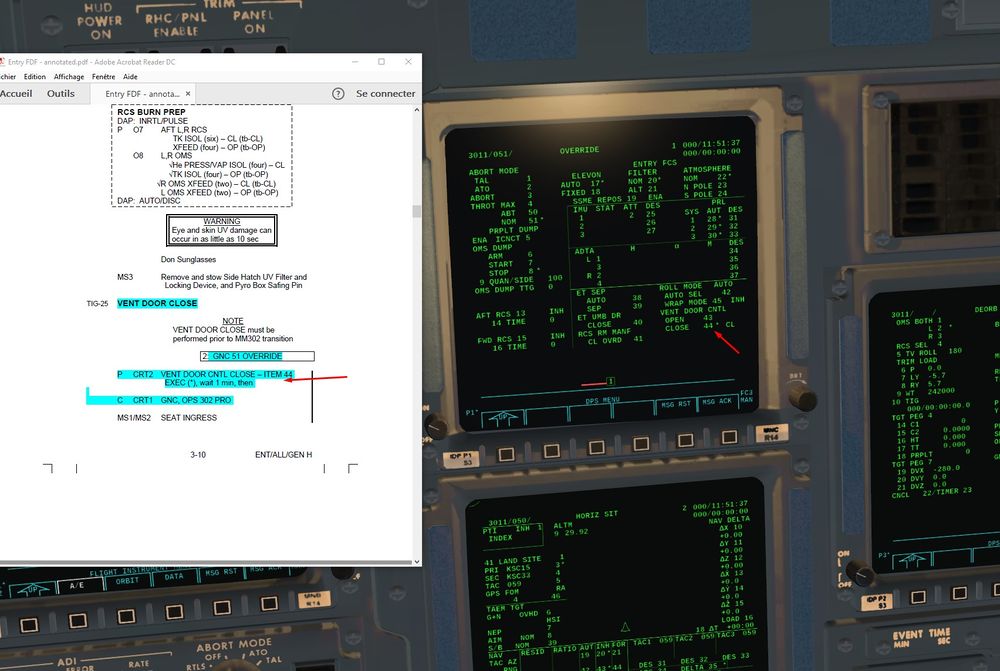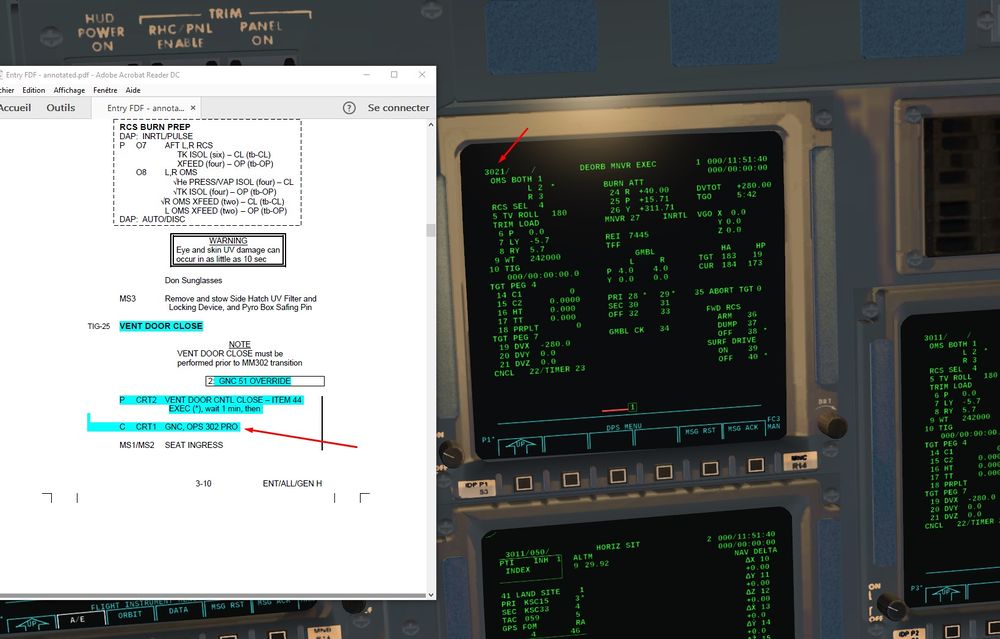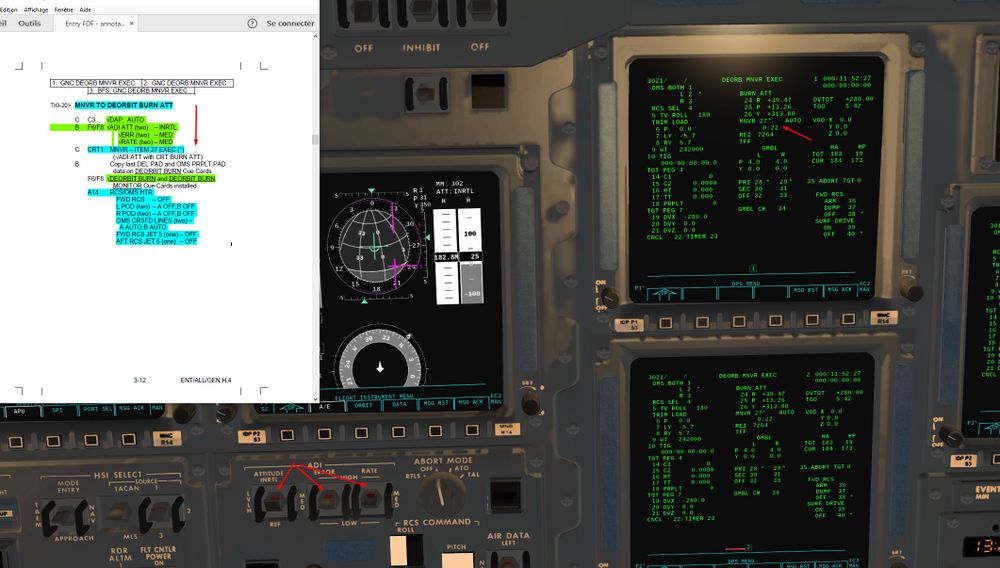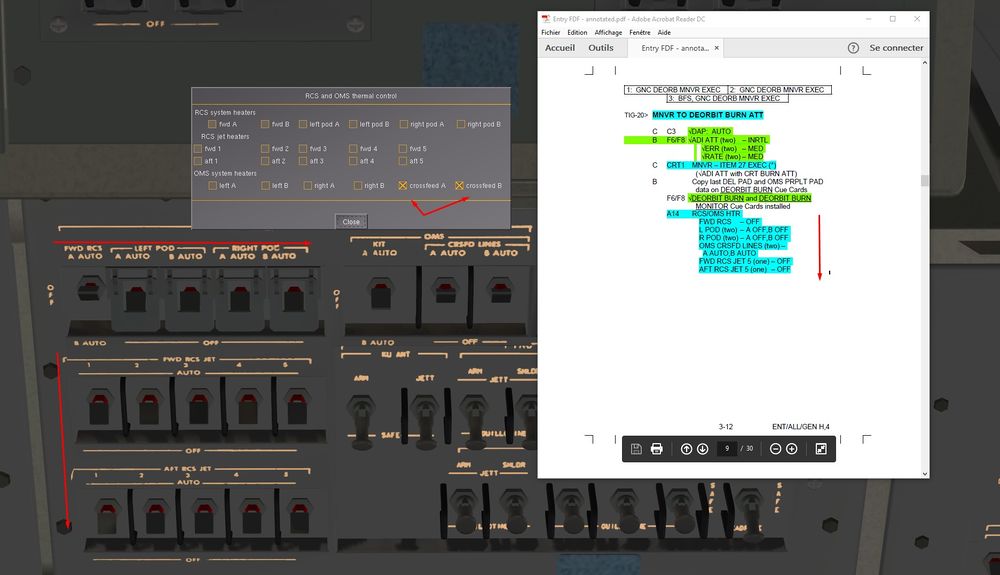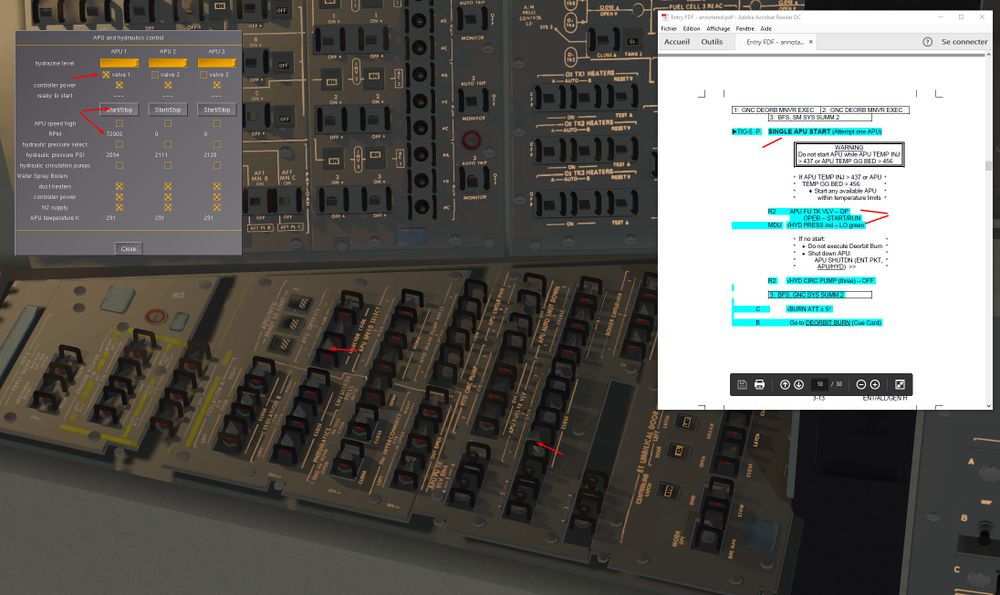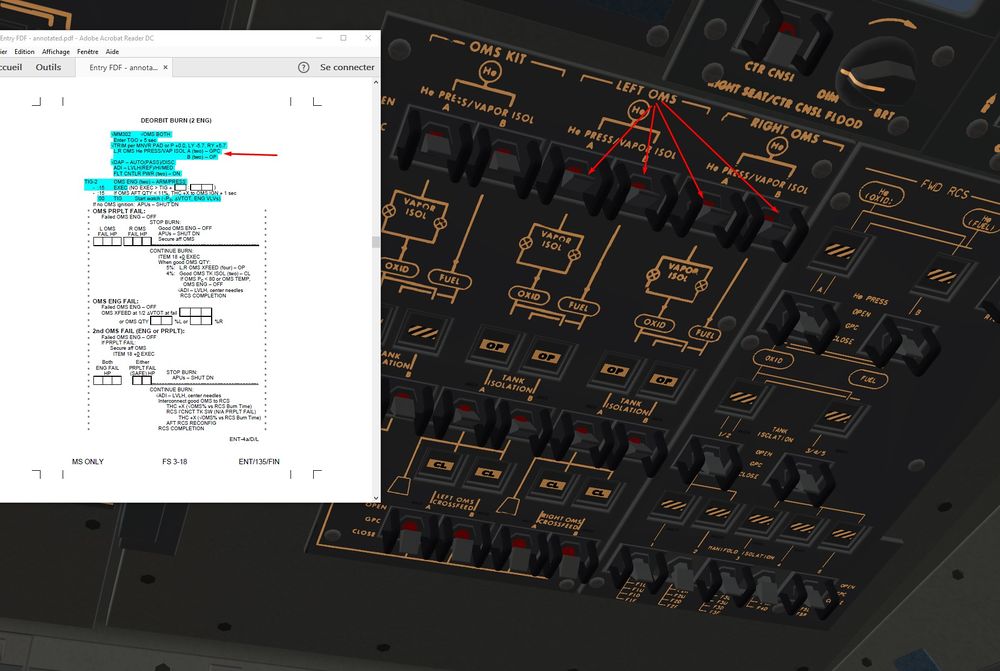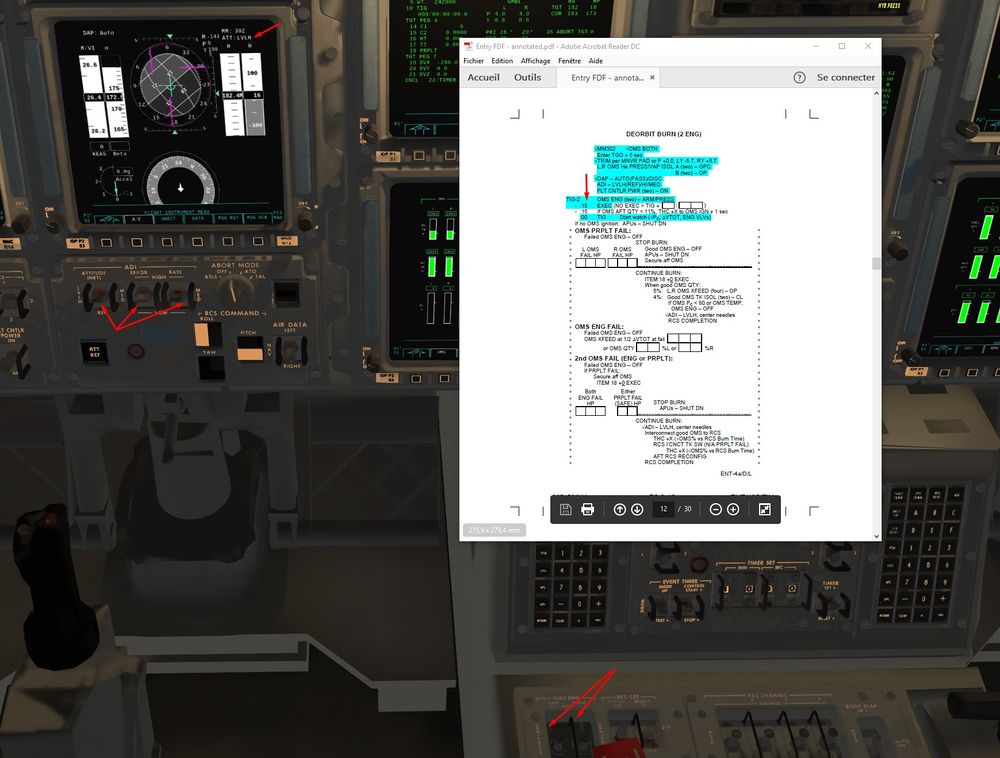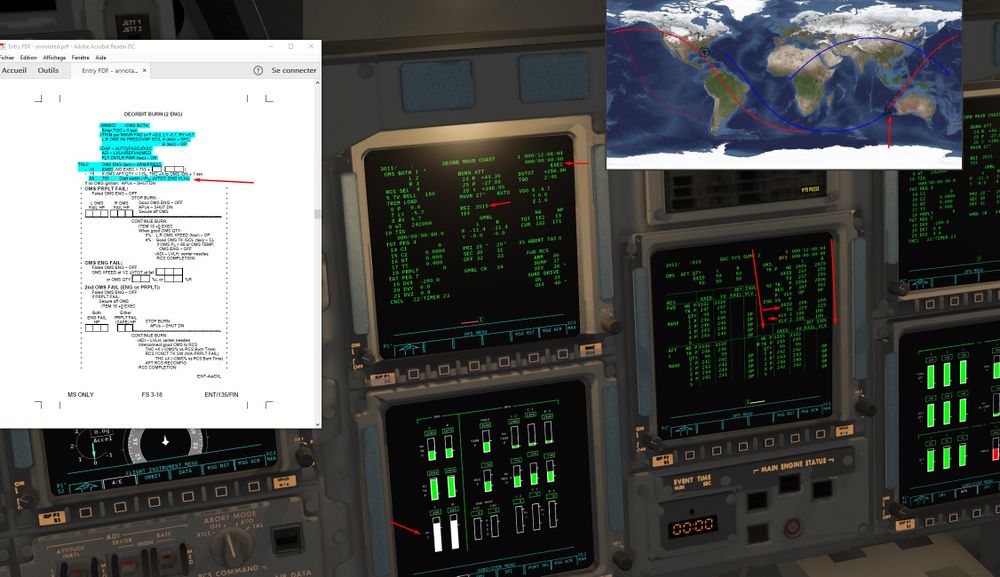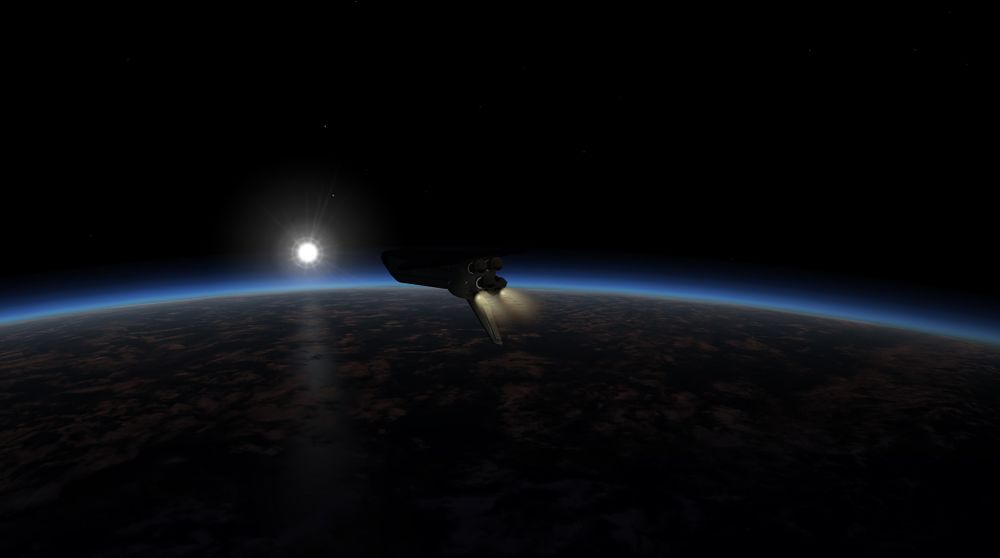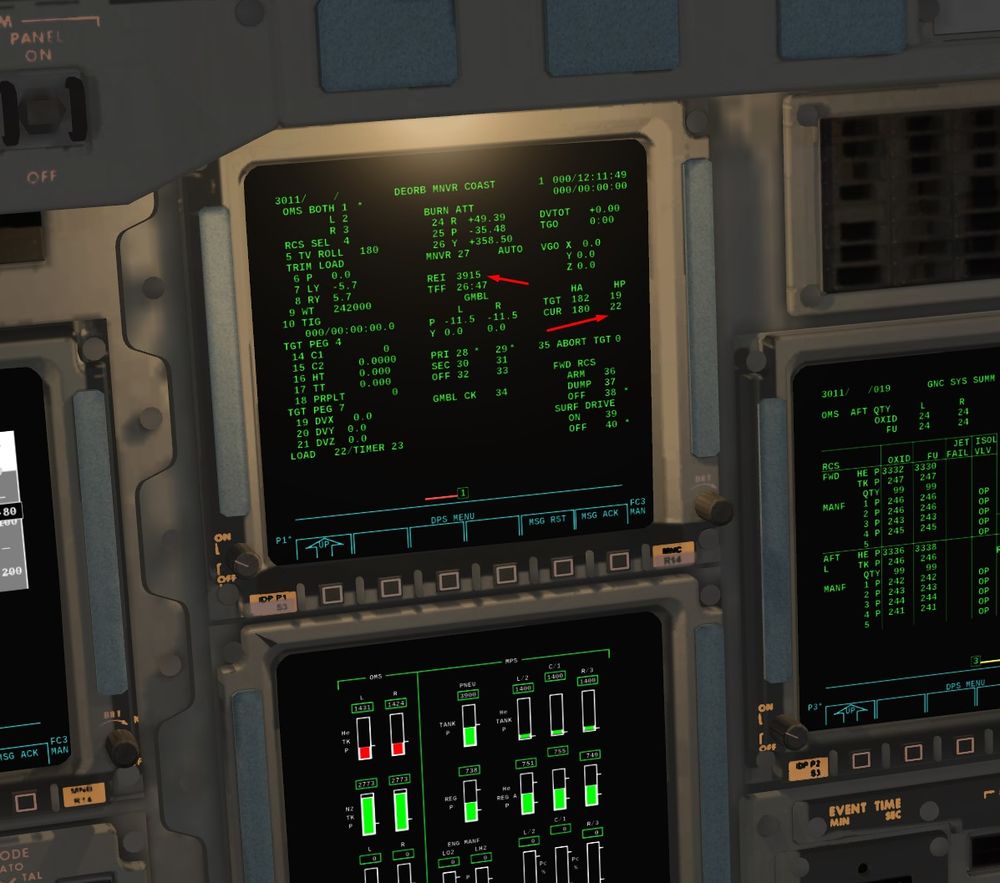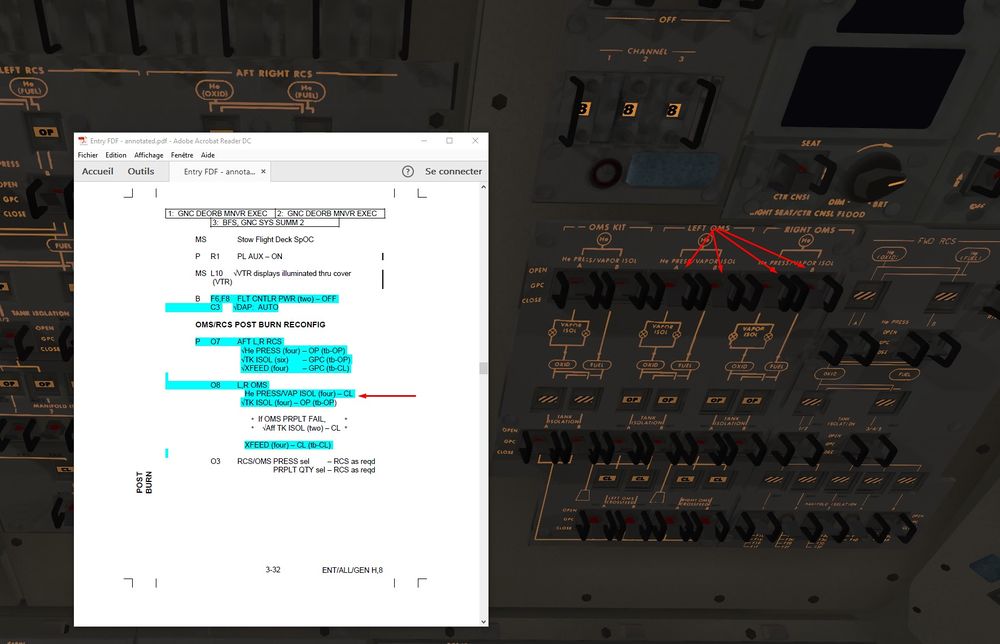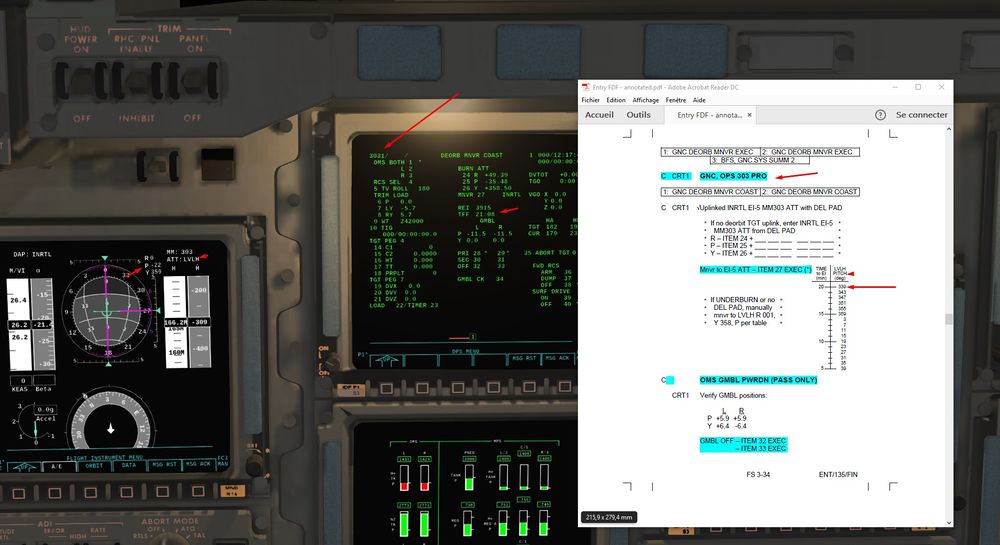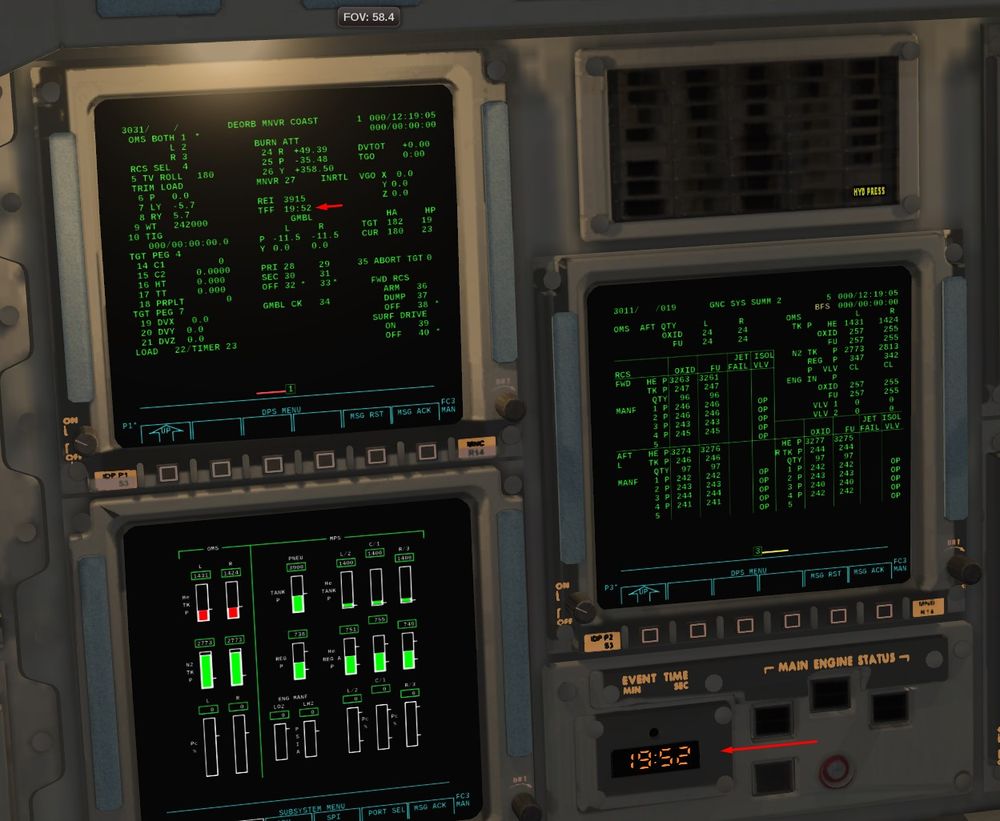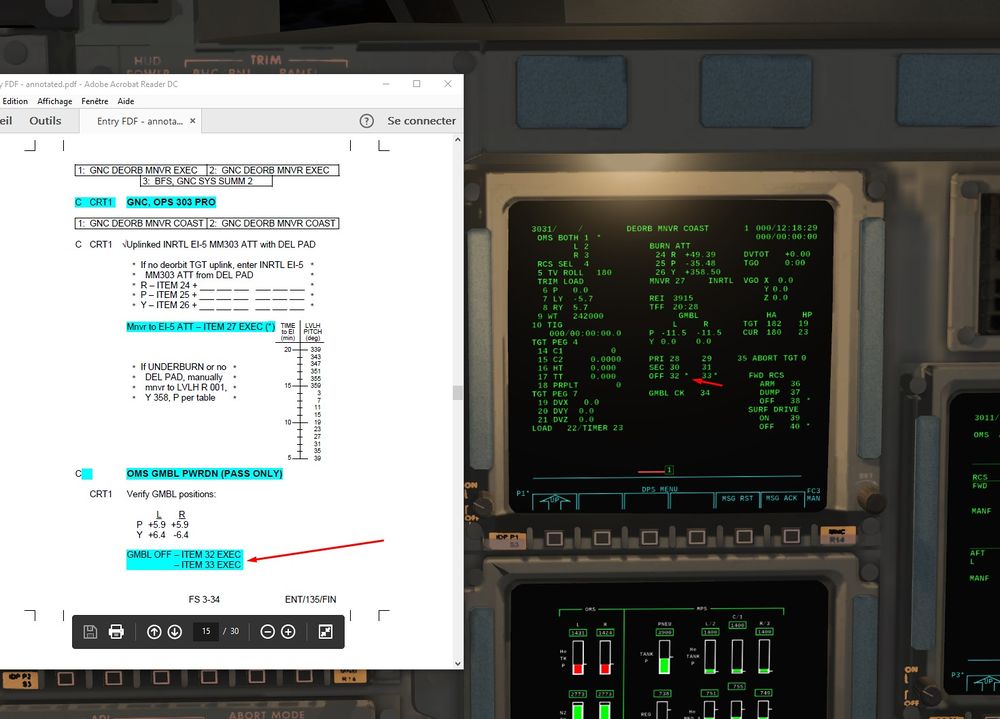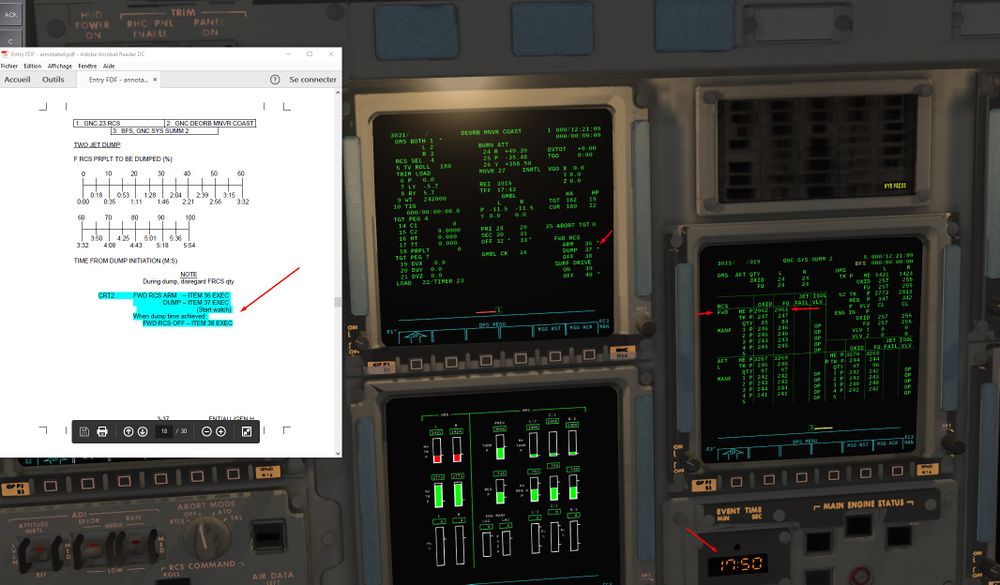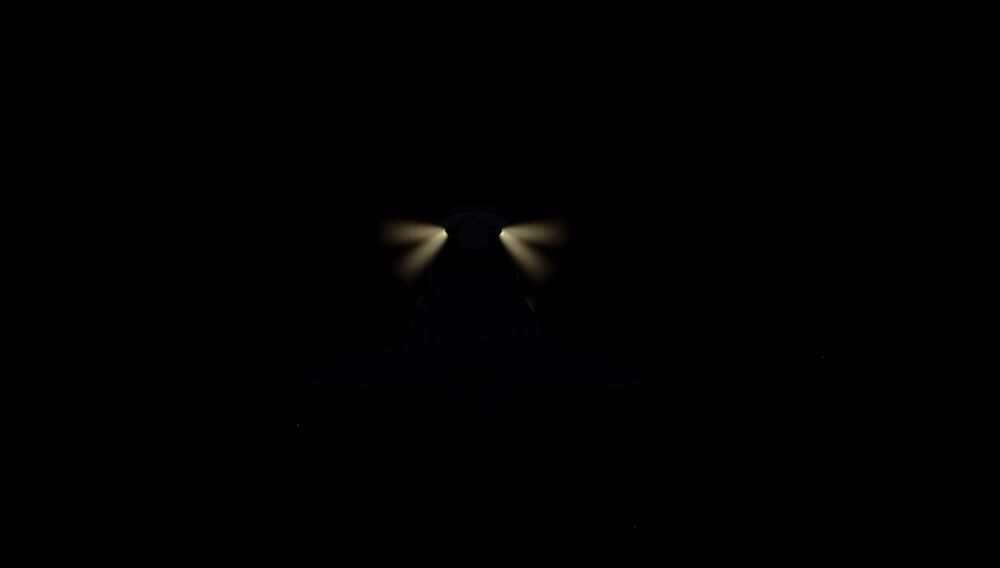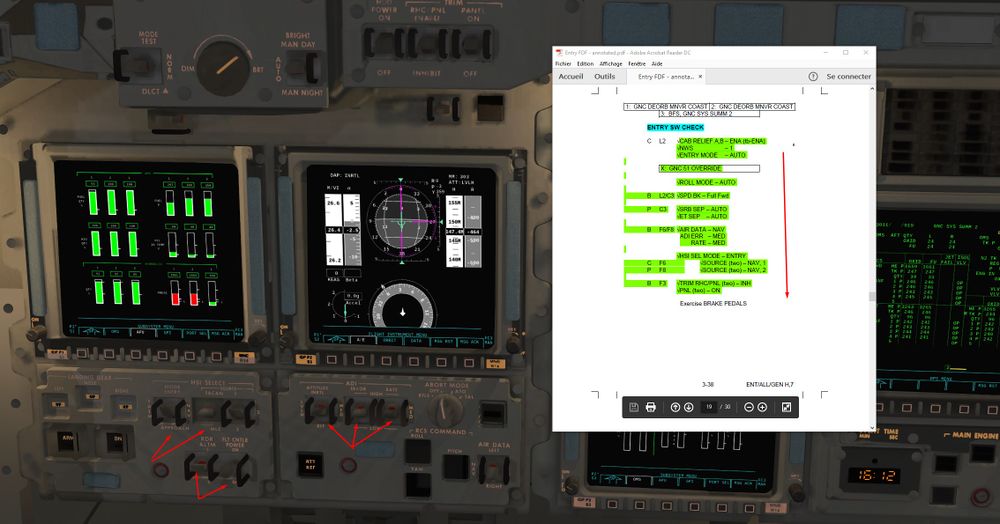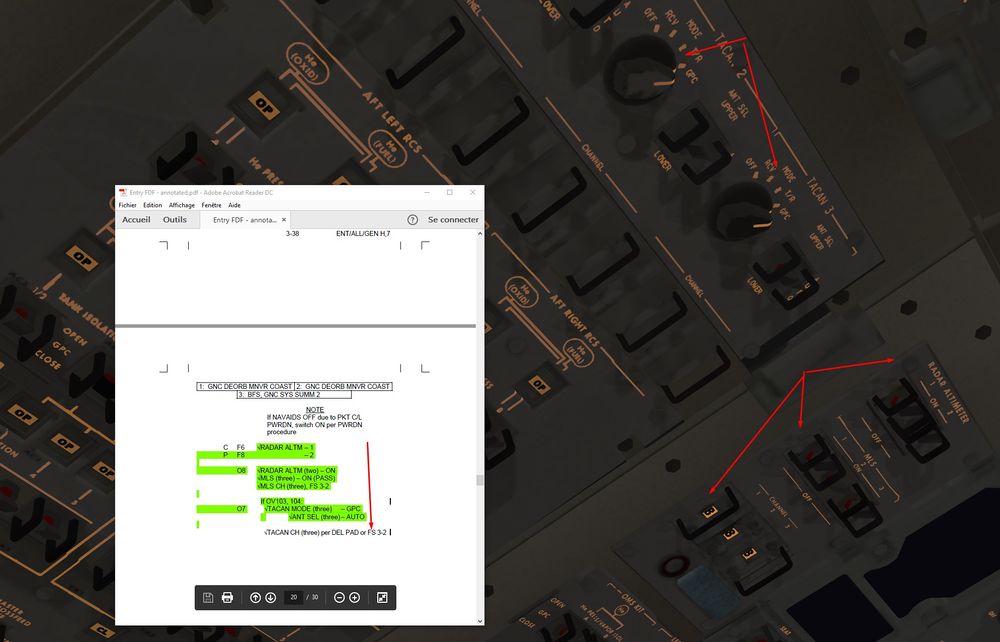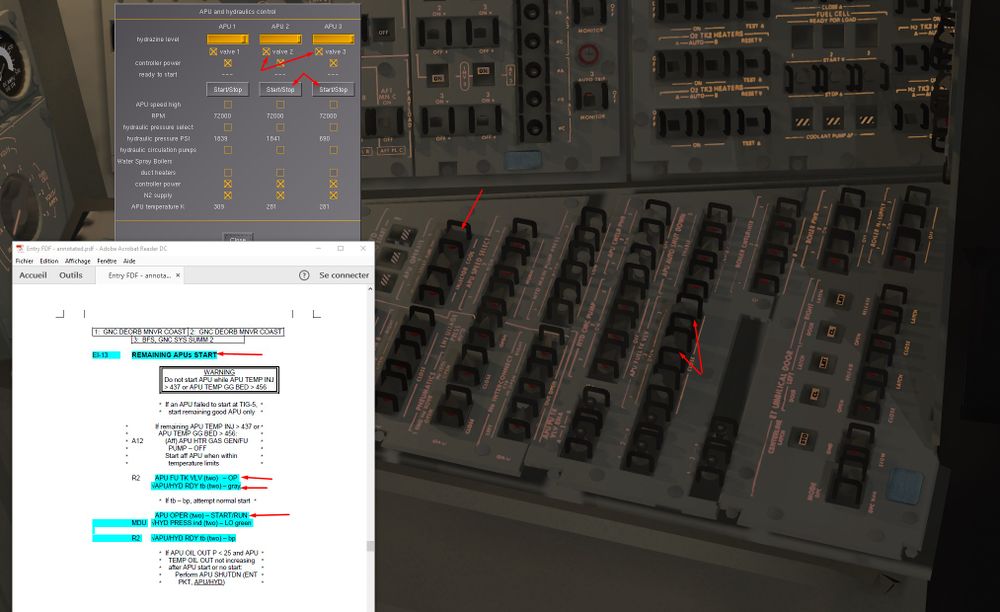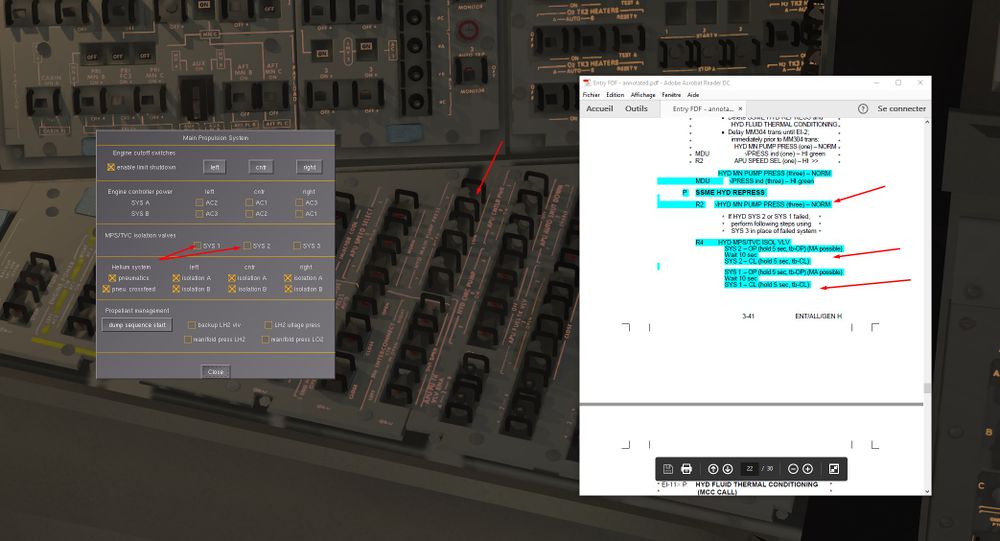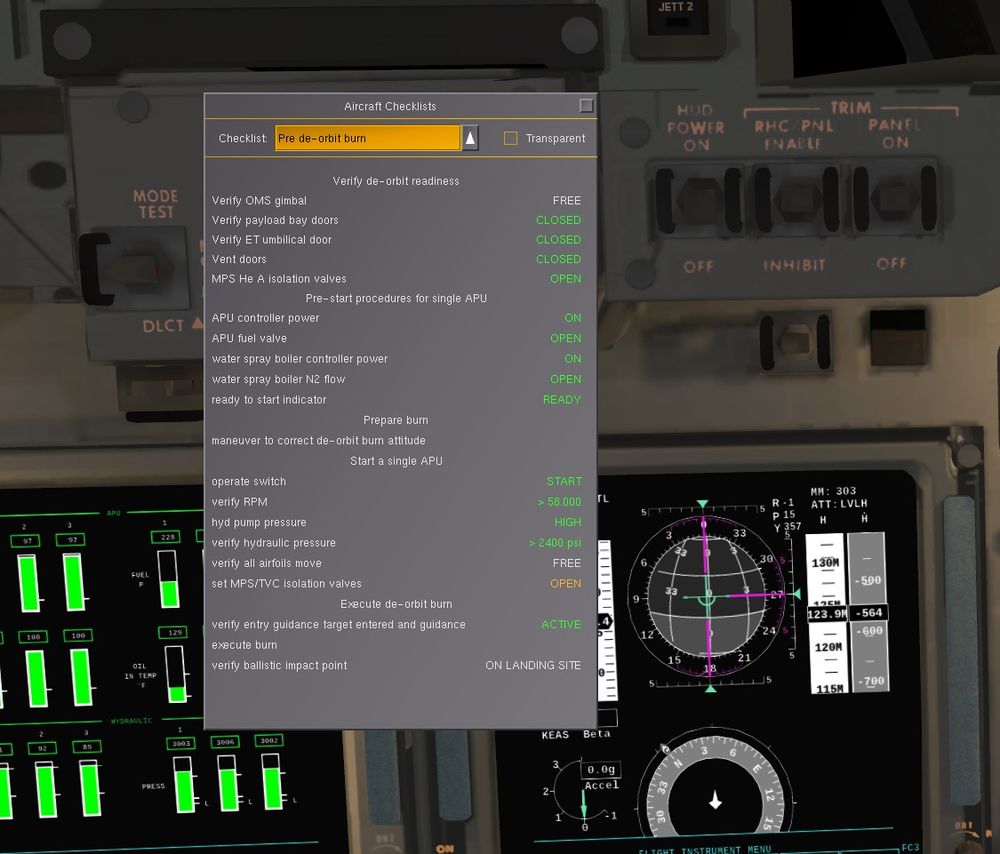Flying the Shuttle - Deorbit Burn and Final Entry Preparation Advanced
This tutorial is following the Deorbit Preparation: Flying the Shuttle - Deorbit Preparation Advanced
We will see now the final Burn preparation, the Burn, and the Entry final preparation to be fully ready for the Entry.
We will use from now on the Entry Checklist annotated from here : Flying the Shuttle - Space Shuttle Checklists
Deorbit Burn preparation and Burn
We gonna use now the Entry Checklist which starts in real 45 mn before the burn ( 15 mn in our situation)
We are nicely catching the time with good use of time compression
1)We check once again the burn solution : Velocity, inertial attitude BURN ATT, length of the burn TGO and total velocity DVTOT.
Also, check the target Apogee and Perigee ( TGT HA HP)
As there is still a mistake from my part here, TGO is 5:42 instead of 3 mn ish with 2 engines burn ( it is what you should see as we are doing a 2 engines burn).
2) We check that nozzles can move freely ( Gimbal)
Item 34 A star * appears right of GMBL CK and disappears once the check is completed.
3)APU Pre Start
Mainly checks to do
Hyd Pump on Low, Apu controller On et Boiler N2 Supply On ( Nitrogene pressurising Water Tanks that will cool down Hydro and Oil from APU gearbox)
4) We check on Spec 50 the good datas and configuration for final entry phase ( TAEM).
Good runway here is KSC 15.
Normally, nothing to change, just some checks.
5)One more step to verify burn solution ( a bit redundant, but mistakes can happen fast and after OMS ignition, it is hard to recover)
6)We check that the RCS:OMS valves are in correct position
Here, we just have to close the OMS He Press/vapor isol
It allows to isolate the propellant tanks from the Helium tank that pressurises them during a burn. We avoid like that to loose all the Helium in case of leak in the pipes between two OMS burn.
No Helium, no burn ( Pressure feed combustion chamber)
7)We close the ventilation doors ( 10 around the Orbiter, linking non pressurised part of the Orbiter to the exterior pressure condition)
Item 44
We transition to OPS 302 PRO, similar page than previous one used for the Deorbit Burn.
Burn solution is saved during the transition hopefully.
8)We will now put the Orbiter into the correct Inertial attitude for the burn.
DAP Auto mode and ITEM 27
It will put the Orbiter in a good burn attitude and update that one until we perform the burn.
9)Reconfiguration of RCS/OMS heaters ( all Off except crossfeed lines)
10)5 mn before the burn, we start one APU.
Aim is to have at least one APU working after the burn in case of malfunction of the two others.
Being without Hydraulical power for Entry is not an option, and would lead to a crash for sure. So better to be sure to have a working APU before to decrease the Perigee :)
11)OMS valves reconfiguration before the burn, Helium is now feeding both propellant tanks in each OMS system
Last verification of front switch ( Frame in LVLH, Medium error and rate for monitoring)
OMS Eng checked on ARM/PRESS, if not, no Nitrogen to open bi-valves that separate propellant from combustion chamber.
Next screen will show normal behavior on 2 engines ( I corrected the small mistake )and we have 3 mn of burn TGO. Good.
REI is around 4000 Nm, so we press EXEC and monitor the burn.
Monitoring of : Valves well opened at 100% and Pc combustion full white and above 80 %
Also, we can check the ENG IN P ( Engine inlet pressure) that indicates the pressure of either the fuel or oxydant before the combustion chamber
Value should be lower than the on in respective tanks due to propellant suction into the chamber.
That is an important parameter to detect an engine failure.
For example, if the ENG IN P of the oxydizer is high and the Pc parameter is below 80 % , we can deduce that something is blocking the Oxydizer after the engine inlet line.
Hence, that engine is lot, but we can still use the remaining fuel to do a cross feed and fisnish the burn on one engine.
Same stuff with ENG IN P Ox low that time, we can deduce that there is a leak somewhere between the Oxydizer tank and the main chamber, so both the engine and remaining propellant is lost.
Visually
Burn is over , we check the results ( REI, HA and HP)
REI of 3900nm , and HP of 22 Nm, perfect and in accordance with the map ( cercle indicates the estimated EI, it will move a bit before stabilizing)
Final Entry Preparation
12)Final reconfigruation of OMS, Helium valves are closed once for good
We switch in OPS 303 PRO, Coasting phase between Deorbit Burn and Entry software OPS 304
We go in the correct attitude for entry.
Autopilot will maintain an inertial attitude, and we want to be in 20 mn in LVLH frame at: Pitch of 40 °, no yaw or roll at Entry Interface.
So a Pitch attitude of 330 ° ( -30° in the game) should bring us at an attitude of 40 ° in 20 mn of inertial attitude.
Event Time set to time before EI interface ( TFF), 20 mn in our case
13) OMS gimbal are switch off, no more move OMS
14)We gonna dump to remaining propellant in Forward RCS tank
We want to avoid potential hazard during entry.
Moreover, only the aft RCS are used during entry for shuttle control.
4 RCS at the front fire at the same time to avoid any roll, smart way to dump, no?
15)Check that the switches linked to navigation and monitoring for entry are in the good position
16) 13 mn before entry, we start the remaining APU ( 2 and 3)
Fuel tank opened and Starter On
17)Pressurization of the SSME with hydraulic liquid to allow their repositioning of the nozzles for Drag chute opening
Hyd Pumps switch on Norm ( 3000 PSI)
Checklist in game to verify that everything was done
Voila, Rendez vous 5 mn before the Entry Interface for the final Countdown


